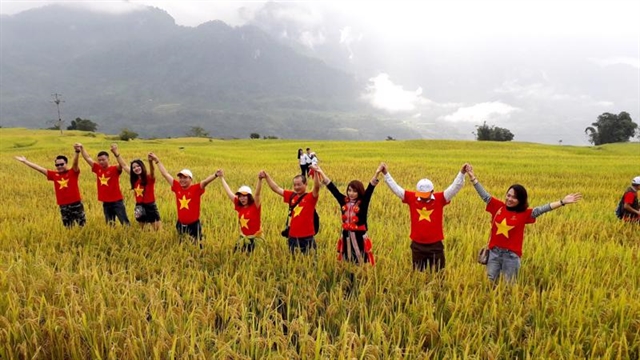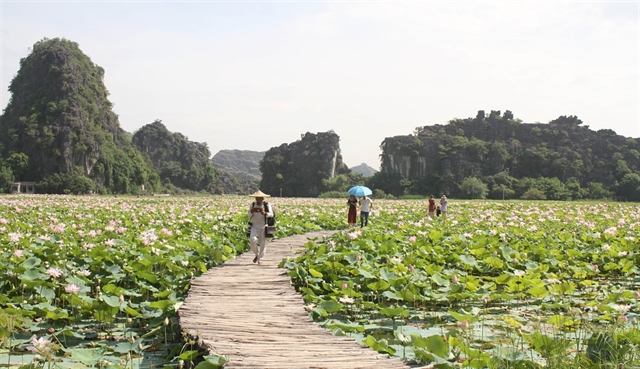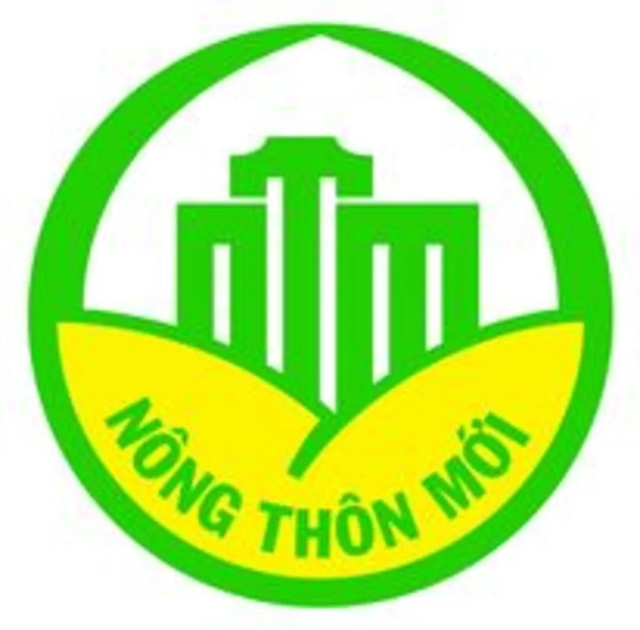 Society
Society

 |
| Việt Nam has many advantages to develop rural tourism. — VNS Photo |
By Tố Như
Agricultural products play a vital role in constructing rural tourism products, while rural tourism, in turn, provides an environment for the development of agricultural products, said Phương Đình Anh, Deputy Head of the National Coordination Office of the National Targeted Program on New Rural Development.
The OCOP programme, initiated by the Ministry of Agriculture and Rural Development (MARD) in 2008, is meant to help develop the economy in rural areas and implement the national target programme on new-style rural area building.
According to the data from the Ministry of Agriculture and Rural Development, a total of 10,322 OCOP products nationwide have been rated at least three stars, including 51 five-star products.
“The OCOP products and the development of rural tourism have a close relationship with each other,” Anh said.
"Even though the quantity may not be sufficient for large-scale exports, OCOP products bring significant material and cultural value. The most valuable way to 'export' the essence of OCOP products is when these items are favoured by international tourists and brought back to their home countries," he added.
Nguyễn Hoàng Anh, Vice Chairman of the Vietnam Digital Agriculture Association and CEO of Nam Miền Trung Group, said the OCOP brand was being affirmed through high-quality products in the new phase.
“However, the programme needs to leverage the value of connectivity and market value so that the OCOP brand can facilitate trade connections and link values in services, culture and tourism,” he noted.
In addition, it is necessary to plan regional areas, establish locations and exhibition centres for showcasing and introducing OCOP products, as well as facilitate trade connections to boost their sales. These efforts will contribute to a stronger market presence and wider distribution of OCOP products.
According to him, transforming the OCOP programme into a nationally recognised brand holds immense value for the agricultural sector in Việt Nam.
He recommended the establishment of additional standards and criteria to ensure the value of the products, preventing misuse and decline of OCOP products, thus maximising their full potential.
Meanwhile, Ngô Thị Phương Lan, the Rector of the University of Social Sciences and Humanities, Vietnam National University Hồ Chí Minh City, said agriculture should focus on creating new values that align with emerging trends.
According to her, one of those new values is the development of agritourism. She believes that agritourism offers a sustainable solution that enables farmers to increase their income by utilising their own farmland, while promoting the consumption of local agricultural specialties, particularly OCOP products.
"Integrating tourism with agricultural development is not a new concept, but we need to determine how to make tourism more humane, green and ecological," she emphasised.
Sharing a business perspective, Hồ Kim Liên, Chairwoman of the Vietnam Fish Sauce Association and Chairwoman of the Board of Directors of Khải Hoàn Company, said: "Since participating in the OCOP Programme and receiving the 5-star rating, Khải Hoàn fish sauce has become a representative product of Phú Quốc, contributing to preserving local traditions."
Dương Minh Bình, Director of CBT Travel Company, acknowledged the significant development of community-based tourism in Việt Nam.
“This form of tourism helps local communities develop livelihoods and preserve their cultural heritage. It creates job opportunities, raises awareness of environmental restoration and ethnic identity, thereby establishing unique attractions to tourists.
However, according to Bình, rural tourism does not mean requiring tourists to experience the authentic rural lifestyle. All necessary amenities should be provided, but in harmony with the rural environment.
"In fact, we have invited chefs from five-star hotels to the spots to use local ingredients to cook dishes that are both authentic and appealing to a broader range of tastes. It is only when we attract guests to experience it firsthand that specialties like OCOP products receive attention, appreciation and acceptance from visitors," he explained.
 |
| Tourists are seen on lotus ponds in Ninh Bình Province. — VNS Photo |
Realising rural tourism is a global trend and an advantage of Việt Nam, the MARD aims to exploit it as an economic sector and make it a national brand, with the support of OCOP products.
The ministry has signed a joint document with the Ministry of Culture, Sports and Tourism to develop rural tourism, with the approval of Prime Minister Phạm Minh Chính.
Besides programmes to promote local agricultural specialties and tourism brands, the ministry has established pilot models for the development of rural tourism in various forms, including community-based, eco-agricultural and nature conservation-linked tourism, along with craft village, smart village and zero-emission tourism.
According to Trần Thanh Nam, the Deputy Minister of the MARD, promoting rural tourism is associated with harnessing the potential and advantages of agriculture, craft villages, culture, and ecological environment of localities.
"The goal is to improve the material and spiritual quality of locals, contribute to the transformation of the rural economy towards integrated, value-added, comprehensive and sustainable development.
"This objective is outlined in Decision 922/QD-TTg issued by the Prime Minister regarding the development of rural tourism linked to the construction of new-style rural areas in the period from 2021 to 2025," he said. — VNS
 |




